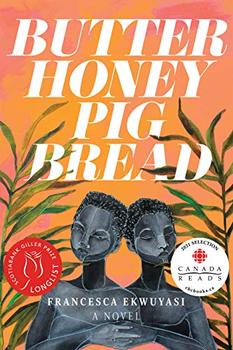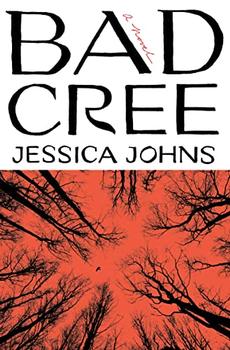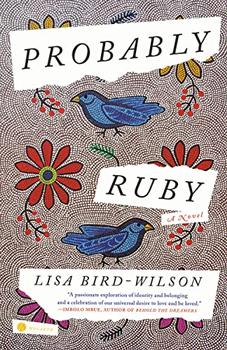Summary | Excerpt | Reviews | Beyond the book | Read-Alikes | Genres & Themes | Author Bio

 Book Reviewed by:
Book Reviewed by:
Elisabeth Cook
Buy This Book
Spanning three continents, Butter Honey Pig Bread tells the interconnected stories of three Nigerian women: Kambirinachi and her twin daughters, Kehinde and Taiye.
Kambirinachi believes that she is an Ogbanje, or an Abiku, a non-human spirit that plagues a family with misfortune by being born and then dying in childhood to cause a human mother misery. She has made the unnatural choice of staying alive to love her human family but lives in fear of the consequences of her decision.
Kambirinachi and her two daughters become estranged from one another because of a trauma that Kehinde experiences in childhood, which leads her to move away and cut off all contact. She ultimately finds her path as an artist and seeks to raise a family of her own, despite her fear that she won't be a good mother. Meanwhile, Taiye is plagued by guilt for what her sister suffered and also runs away, attempting to fill the void of that lost relationship with casual flings with women. She eventually discovers a way out of her stifling loneliness through a passion for food and cooking.
But now, after more than a decade of living apart, Taiye and Kehinde have returned home to Lagos. It is here that the three women must face each other and address the wounds of the past if they are to reconcile and move forward.
For readers of African diasporic authors such as Teju Cole and Chimamanda Ngozi Adichie, Butter Honey Pig Bread is a story of choices and their consequences, of motherhood, of the malleable line between the spirit and the mind, of finding new homes and mending old ones, of voracious appetites, of queer love, of friendship, faith, and above all, family.
Longlisted for the Scotiabank Giller Prize.
Taiye
Taiye awoke To a warm slick of dark blood sticking between her lean thighs. Menstrual fluid soaked through her green underwear and made a splotchy maroon map on the orange batik sheets of her bed. In recent mornings, since moving back home to Lagos, she awoke to thoughts of her bees; they lived in an olive-green hive underneath the dappled shade of the palm trees clustered in the backyard. Among the palms, lush bougainvillea cascading over the fence between the neighbour's compound dropped bright pink paper blooms like blessings upon the hive. Taiye had been romanced by the notion of keeping bees since she was a small girl, so the moment the dream was within reach, she seized it and clutched it tight. And learned hard lessons on loving the living.
On that particular morning, her first thoughts were of her sister, Kehinde.
Taiye stretched, breathing in deeply.
On the exhale, she whispered, "May I be safe," and hoped that her words would fall upon open ears. Kehinde was ...
Rather than telling the story in chronological order or splitting the novel into full separate accounts of each character's life, Ekwuyasi chooses to alternate between family members as if building an elaborate layer cake, revealing in measured portions how Kambirinachi, Taiye and Kehinde all come of age while balancing love interests and life callings. The novel seems to enter and leave each character's storyline at times when the reader's interest is at its peak, which causes the format to appear deliberately episodic. This approach also has the effect of making Kambirinachi's sense of timelessness and proximity to death feel more immediate and comprehensible...continued
Full Review
(758 words)
This review is available to non-members for a limited time. For full access,
become a member today.
(Reviewed by Elisabeth Cook).
 Canisia Lubrin, author of The Dyzgraphxst
Butter Honey Pig Bread roves through the ingredients of things that mark the modern, if enduring, currents of familial and amorous bonds by a writer of ample talent.
Canisia Lubrin, author of The Dyzgraphxst
Butter Honey Pig Bread roves through the ingredients of things that mark the modern, if enduring, currents of familial and amorous bonds by a writer of ample talent. Catherine Hernandez, author of Scarborough
In this remarkable debut novel, a family of Nigerian women attempt to carefully tiptoe around an unspeakable tragedy. Through masterfully crafted scenes full of sumptuous imagery, readers are moved, just as these characters are, by forces beyond their control, beyond their lifetimes.
Catherine Hernandez, author of Scarborough
In this remarkable debut novel, a family of Nigerian women attempt to carefully tiptoe around an unspeakable tragedy. Through masterfully crafted scenes full of sumptuous imagery, readers are moved, just as these characters are, by forces beyond their control, beyond their lifetimes..jpg) Agege (pronounced "a-GAY-gay") bread is a sweet white bread known for its unique soft and dense texture. It is a common food in Nigeria, particularly in Lagos, where it is produced by local bakeries and sold by vendors on the streets. In Butter Honey Pig Bread by Francesca Ekwuyasi, Taiye attempts to master baking Agege bread, but finds that her version fails compared to "the particularly dense and stretchy texture of the loaves she buys from the hawkers" in Obalende, a neighborhood in Lagos.
Agege (pronounced "a-GAY-gay") bread is a sweet white bread known for its unique soft and dense texture. It is a common food in Nigeria, particularly in Lagos, where it is produced by local bakeries and sold by vendors on the streets. In Butter Honey Pig Bread by Francesca Ekwuyasi, Taiye attempts to master baking Agege bread, but finds that her version fails compared to "the particularly dense and stretchy texture of the loaves she buys from the hawkers" in Obalende, a neighborhood in Lagos.
Industrialized baking was introduced to Nigeria by Amos Shackleford, a Jamaican entrepreneur known as the "Bread King," who in 1913 began a bread business that would expand into a widespread empire. Immigrants from the West Indies like Shackleford (...
This "beyond the book" feature is available to non-members for a limited time. Join today for full access.

If you liked Butter Honey Pig Bread, try these:

by Jessica Johns
Published 2023
In this gripping, horror-laced debut, a young Cree woman's dreams lead her on a perilous journey of self-discovery that ultimately forces her to confront the toll of a legacy of violence on her family, her community and the land they call home.

by Lisa Bird-Wilson
Published 2023
An Indigenous woman adopted by white parents goes in search of her identity in this unforgettable debut novel about family, race, and history.





The Funeral Cryer by Wenyan Lu
Debut novelist Wenyan Lu brings us this witty yet profound story about one woman's midlife reawakening in contemporary rural China.
Your guide toexceptional books
BookBrowse seeks out and recommends the best in contemporary fiction and nonfiction—books that not only engage and entertain but also deepen our understanding of ourselves and the world around us.